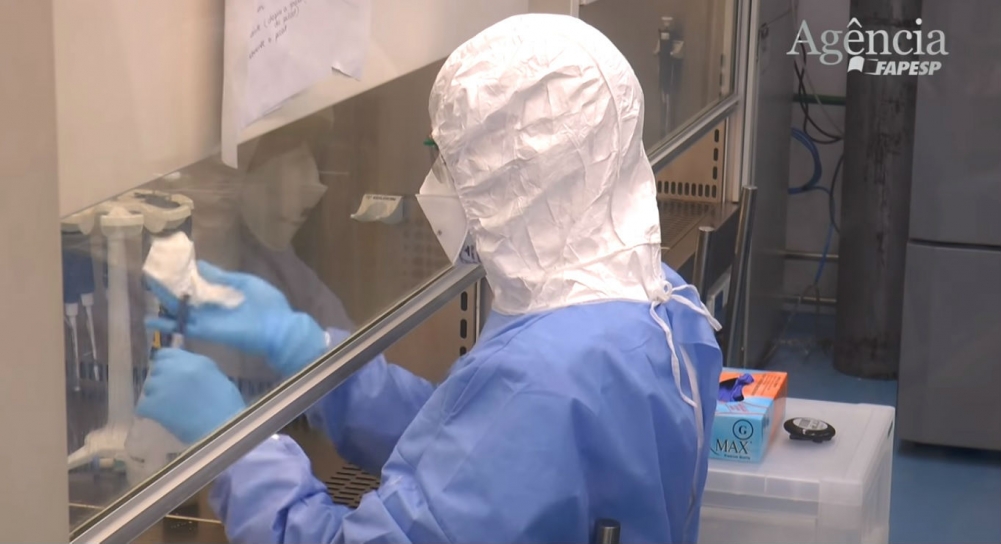


Researchers explains how their experience with the Zika virus, made possible with funding from FAPESP, helped them to cultured the SARS-CoV-2 coronavirus (image: Agência FAPESP)
Published on 03/25/2021
Agência FAPESP – Researchers at the University of São Paulo (USP) in Brazil have cultured the SARS-CoV-2 coronavirus in a laboratory. The virus that caused COVID-19 was isolated from the first two patients diagnosed with the disease in the city of São Paulo, at the Albert Einstein Jewish Hospital.
The viruses will be distributed to research groups and public and private clinical laboratories throughout Brazil to enhance their capacity to perform diagnostic tests and investigate how the disease spreads.
"Our aim in producing the coronavirus in the laboratory was precisely to have the virus for distribution throughout Brazil. We had the example of zika. When the zika outbreak happened in late 2015, we knew nothing about zika. We had no isolated viruses," Edison Luiz Durigon, professor at USP’s Institute of Biomedical Sciences, told Agência FAPESP.
"We produced large numbers of the virus and distributed them to labs in FAPESP’s network in São Paulo and also to the network of the Brazilian Ministry of Health. As a result the labs achieved very fast scientific progress. In three months we already had papers published in Nature and Science, for example. The same thing applies now to the coronavirus," Durigon said.
Watch bellow the full interview with professor Durigon (turn on the subtitles to English):
Source: https://agencia.fapesp.br/32908